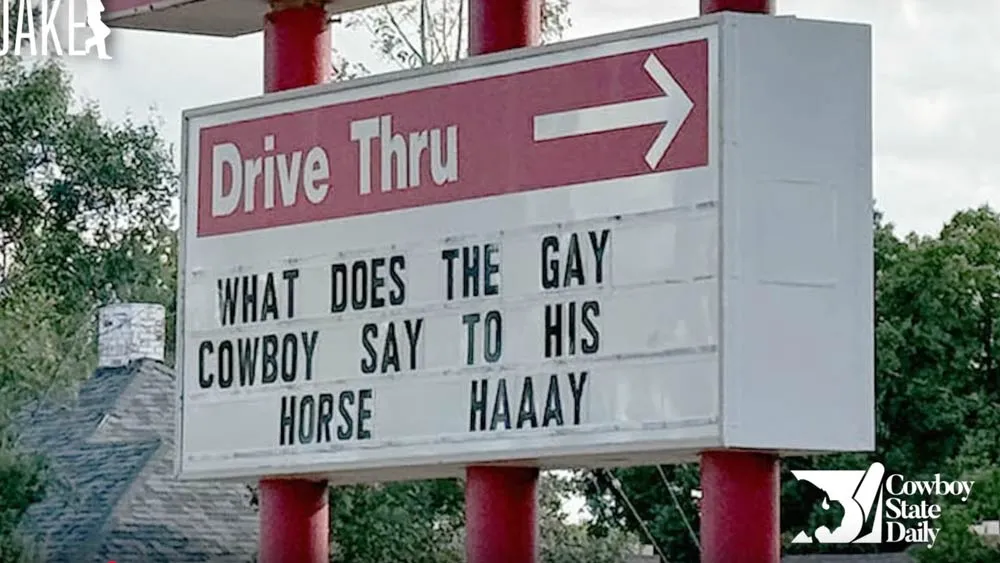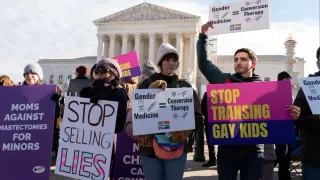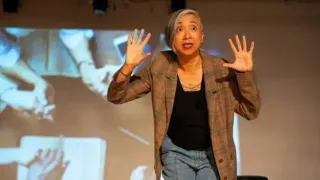
Apr 19
Inclusive Storybooks Headed to the Supreme Court
Mark Sherman READ TIME: 3 MIN.
A prince lassos a dragon, saving a knight in shining armor from certain death. But the prince slips and as he falls, the knight and his steed race to return the favor.
Then the two men fall in love.
That story, "Prince and Knight," is one of five children's books featuring LGBTQ characters and aimed at kindergarten through the fifth grade that have roiled a diverse suburban Maryland school district and led to a Supreme Court case that the justices will hear on Tuesday.
Parents in Montgomery County who object for religious reasons want to pull their children from elementary school classes that use the books.
The county school system has refused and lower courts have so far agreed.
But the outcome could be different at a high court dominated by conservative justices who have repeatedly endorsed claims of religious discrimination in recent years.
The parents argue that public schools cannot force kids to participate in instruction that violates their faith. They point to opt-out provisions in sex education and note that the district originally allowed parents to pull their children when the storybooks were being taught before abruptly reversing course.
"It's labeled as a language arts, you know, reading and writing program, but the content of the material is very sexual," said Billy Moges, a board member of the parents group Kids First that formed in response to the addition of the books to the curriculum. "It is teaching human sexuality and is confusing kids, and parents are not comfortable having their children exposed to these things at such an early age."
Dozens of parents testified at school board hearings about their religious obligations to keep their impressionable young children from lessons on gender and sexuality that conflicted with their beliefs.
Moges said she pulled her three daughters, now 10, 8 and 6, from their public schools as a result. They were initially homeschooled and now attend a private Christian school, she said.
The school system declined to comment, citing the ongoing lawsuit.
But in court papers, lawyers for the schools wrote that the handful of storybooks are not sex-education materials but "rather tell everyday tales of characters who experience adventure, confront new emotions, and struggle to make themselves heard." The books touch on the same themes found in classic stories that include Snow White, Cinderella and Peter Pan, the lawyers wrote.
In "Uncle Bobby's Wedding," a niece worries that her uncle will not have as much time for her after he gets married. His partner is a man. "Love, Violet" deals with a girl's anxiety about giving a valentine to another girl. "Born Ready" is the story of a transgender boy's decision to share his gender identity with his family and the world. "Intersection Allies" describes nine characters of varying backgrounds, including one who is gender-fluid.
The books were chosen "in order to better represent all Montgomery County families" and teachers may not use them "to pressure students to change or to change or disavow religious views," the schools' lawyers said.
The school system abandoned the option of letting parents take their kids out of the lessons because doing so "became unworkably disruptive," the lawyers told the court.
The writers' group Pen America, which reported more than 10,000 books banned in the last school year, said in a court filing what the parents want is "a constitutionally suspect book ban by another name."
The difficulty of providing alternative lessons for some children anytime the books are used probably would force the county to pull the books from the curriculum, said Tasslyn Magnusson, senior adviser with the Freedom to Read program at PEN America.
"I really hope people read these books. They're just lovely examples of experiences that kids have in school and they're perfectly fine storybooks to have as part of an educational curriculum," Magnusson said.
One book that was originally part of the curriculum and then pulled for unexplained reasons is "My Rainbow," co-written by Delaware state Rep. DeShanna Neal and daughter Trinity.
The story tells of Trinity's desire for long hair as a transgender girl and her mother's solution, knitting a rainbow wig.
Neal has grown used to having the book taken out of circulation at libraries, including in Florida, Ohio and Texas.
"School is a place to learn about why the world is different and how it's different," Neal said. "What I had hoped would come out of this book was, listen to your children. They know their own bodies."







